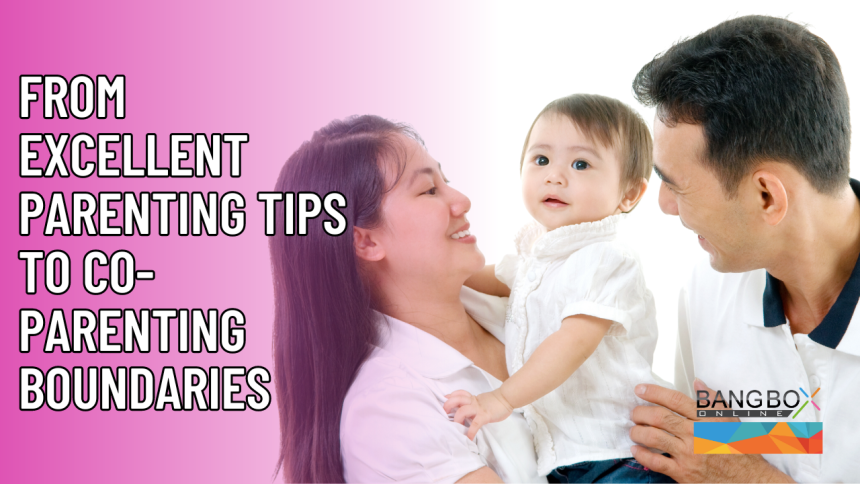
"Navigating Parenthood: From Excellent Parenting Tips to Co-Parenting Boundaries"
"Explore essential parenting insights, from excellent parenting tips to co-parenting strategies, for a brighter future. Learn the art of raising confident, kind, and successful children with expert advice."
2023-09-30 23:20:55 - Tooba Naveed
Excellent parenting acts as a foundation for the future success of the child. Raising kids is one of the toughest and most fulfilling jobs in the world and the one for which you might feel least prepared. Throughout the circus act of parenting, it’s essential to emphasize performing responsibilities, adjusting priorities, and swiftly flipping between your children’s needs and yourself.
Nine Steps to Excellent Parenting:
We all wish to be the best parents we can be for our children, but there is a frequent conflict on how to raise a kid who is kind, self-reliant, and prosperous. In this article, we will help you to adopt a lifestyle that can help raise a kid with high self-esteem. Here is a list of tips for excellent parenting;
- Boost your child’s self-esteem
- Make time for your kids
- Set limits and be consistent with your discipline
- Be a good role model
- Make communication a priority
- Be flexible and willing to adjust your parenting style
- Show that your love is unconditional
- Know your own needs and limitations as a parent
Keep remembering, there is no right way to raise a kid, just do your best and enjoy the company of kids in your life!
Parental Guide for Movies:
Children are influenced by what they see and hear, particularly at a very young age. Picking a movie for kids can be a difficult task because parents think some materials may not be suitable for their children. The Motion Picture Association of America has resolved the difficulty by giving a voluntary rating system for the movie industry. The movie ratings offer general guidelines to the parents about the content they might consider inappropriate for their children. This also helps to choose a movie that your children would like without leaving any bad impression.
Types of Parenting:
When it comes to parenting, there is a great deal of diversity among families. Every parent pursues a different approach to guiding and interacting with their children. A child’s ethics, conduct, and principles are commonly developed by the parent-children bond. Different researchers have categorized parenting styles into three, four, or more psychological groups. In this article, we’ll talk about two categories i.e. authoritative and authoritarian parenting.
Authoritative Parenting:
In an authoritative parenting style, parents develop a strong communication and cherishing relationship with their children. They have set clear guidelines and disciplines to raise their kids excellently. These parents apply disciplinary methods to ensure support rather than punishment. Authoritative parents result in children who are more confident, kind, and responsible.
Authoritarian Parenting:
Authoritarian parents develop only one way of communication with their children and establish strict guidelines. They expect their children to make no mistakes and follow their instructions firmly. Authoritarian parents are less nurturing and have high expectations with limited flexibility. The resulting children develop aggression and poor self-esteem.
Difference between Authoritative and Authoritarian:
Authoritative vs. authoritarian sounds pretty similar but they are two different categories having different principles.
- Authoritative parents are strict and warm while authoritarian parents are strict and cold.
- Authoritative parents explain rules to their children and these rules can be modified while authoritarian parents expect children to blindly follow their instructions and children are not allowed to present their opinion.
- Authoritative parents trust their child’s sense of fear towards the parent to exert psychological control on the other hand, authoritarian parents impose tight psychological control over their kids.
- Authoritative parents use non-punitive measures to discipline while authoritarian parents favor punitive punishment.
- Authoritative parents allow their children to have more freedom and autonomy plus their standards are higher than authoritarian parents.
What is Co-Parenting?
Co-parenting is described as raising children together after separation or divorce between parents. Positive communication, proactive planning, and staying focused on what’s best for their children can go a long way to avoiding unnecessary conflict and stress. This article presents you best practices to support co-parenting;
- Effective communication between parents certifies that they are consistent in raising their children. Open communication is significant in family rules and responsibilities, builds up strong relationships, and fulfills expectations.
- Planning casual visits with your children can ensure a smoother transition for both parents and children.
- Spending time with your children and maintaining consistency can go a long way to help your child feel safe and secure.
- Make most of the time with your children, doing healthy activities together and minimizing distractions also guarantees a strong relationship.
List of Co-Parenting Boundaries:
Co-parenting with your ex can be challenging particularly when the relationship ended on rocky terms. Establishing healthy co-parenting boundaries refers to developing mutual agreement on rules, discipline, and routines. These boundaries are set to make transitioning easier on children, idealize respect, and nurture relationships between children and parents. In this article, you can find a list of healthy co-parenting boundaries to help yourself;
- Stay consistent with your boundaries
- Use effective and neutral communication
- Determine a parenting style
- Don’t negatively compare your child to your ex
- Never ask your child to choose between you and your ex
- Schedule discussions about your child
- Keep your child’s social life as similar as possible
- Keep your private life private
Successful co-parenting can help parents to make sure that they maintain strong relationships with their children, linked to less behavioral issues and more self-esteem. Investing in good parenting gives you lifetime advantages and paves the way for a brighter future.
